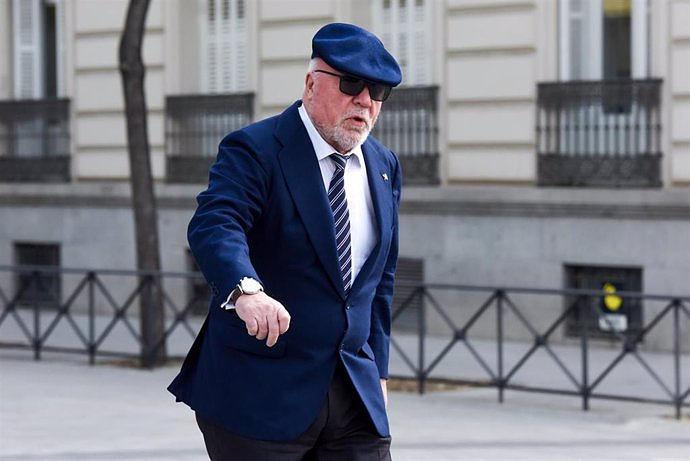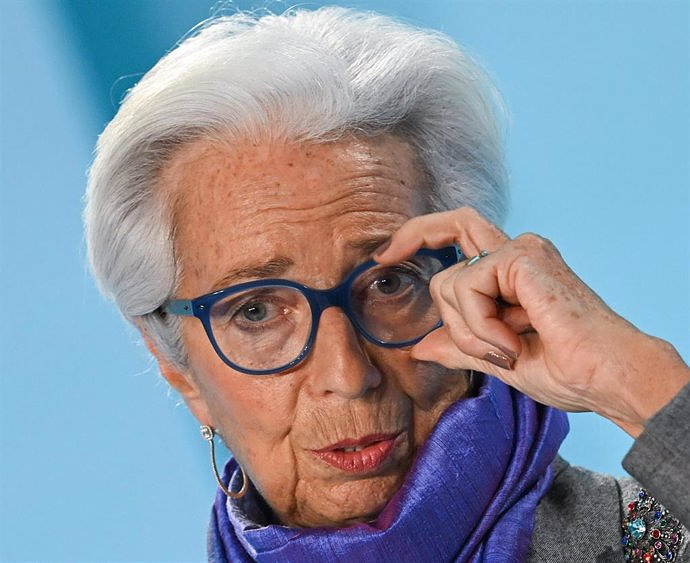He is also prosecuting the former Security Director of the company, Antonio Asenjo, and the commissioner's partner at Cenyt, Rafael Redondo.
The judge of the National Court investigating the 'Tándem' macro case, Manuel García Castellón, has proposed trying Commissioner José Manuel Villarejo and the former Director of Security of Iberdrola Antonio Asenjo for the dozen of allegedly irregular orders that the official carried out for the energy company between 2004 and 2011. It also agrees to declare the company and the State Administration as civilly liable.
This is stated in the order of transfer to abbreviated procedure of separate piece 17, collected by Europa Press, in which the head of the Central Court of Instruction number 6 proposes to also try Villarejo's partner in the company Cenyt Rafael Redondo.
The magistrate considers proven the crimes of passive bribery, active bribery, discovery and disclosure of secrets and falsification of commercial documents.
In his order, the judge names the Iberdrola Group and the General Administration of the State as civilly responsible and transfers it to the Prosecutor's Office and the accusations to present their indictment documents.
The resolution explains that, according to the investigation, between 2004 and 2011, Antonio Asenjo, in his capacity as security director of Iberdrola and with full knowledge that José Manuel Villarejo was in active service as Commissioner of the National Security Corps Police, "entrusted him with different investigations into events that directly affected the Iberdrola company."
According to the judge, the purpose of the investigations commissioned by Asenjo, in the name and on behalf of Iberdrola, to Villarejo, who was in active service as Police Commissioner, "was to obtain information about natural and legal persons that could be used by the company to defend its interests".
And he emphasizes that the investigations entrusted by Iberdrola were assumed by Villarejo "through the Cenyt Group, of which he was the real owner, and in which the investigated Rafael Redondo, who also had a relevant role as lawyer and person in charge of ordinary management, "also intervened in the execution of the investigations commissioned by the Iberdrola Group."
For these orders, the order states, the Villarejo and Redondo company obtained 1,455,064 euros from the Iberdrola Group.
THE FIRST WORKS, IN 2004
After this description, García Castellón explains that the first work investigated dates back to 2004 and was called the 'Arrow' project. It was commissioned by Asenjo and its purpose was to "investigate the natural and legal persons that those investigated suspected were hindering the construction of the combined cycle power plant that Iberdrola was building in the Cadiz town of Arcos de la Frontera." It also sought to "improve the position" of the energy company in the conflicts that arose over the construction of this plant.
The judge recalls that Villarejo's work took the form of "numerous reports and procedures that were documented between 2004 and 2006" and that included "access to telephone call traffic made and received by the people under investigation," a total of seven people.
He explains that it can be seen, indicatively, "a desire on the part of the company to hide these works as seems to be inferred from the fact that the invoices corresponding to the services provided by Cenyt were not issued by it but by another different company, Castellana de Seguridad, S.A. (CASESA)".
The judge explains that in 2004 Asenjo also entrusted the commissioner with the so-called 'Aglow' project, the purpose of which was to establish a permanent collaboration aimed at obtaining any information that could be of interest to the contracting company --Iberdrola-- "and that would help it to defend themselves against any action that could harm their interests".
Between 2004 and 2005 Asenjo also commissioned the so-called 'Blackboard' or 'BB' project, which focused, the judge recalls, on investigating Manuel Pizarro, then president of the company Endesa, one of the Iberdrola Group's main competitors in the market. .
"In the execution of this Blackboard project, those investigated managed to obtain the incoming and outgoing call traffic of Manuel Pizarro" and two other people, he recalls.
The 'Quarter' project was also created about Pizarro, focused in this case "on obtaining information about people with whom he could have contacted within the framework of the public acquisition offer (OPA) that in 2005 the Gas company Natural carried out on Endesa".
WIND, GIPSY Y POSY
Regarding the 'Wind' project, another of those that has been the subject of investigation, the judge recalls that it was born in 2006 and that its objective was to analyze the person of Pedro Víctor Barriuso Otaola, who had been responsible for renewable energies at the Iberdrola Group, due to suspicions that it could develop a business project that competed in the market with the energy company itself.
That same year, Asenjo commissioned Cenyt with "all kinds" of reports on different people who were being considered to become part of the company's board of directors, among whom was Inés Macho Stadler.
The magistrate goes on to explain that in another project, called 'Front', two workers at the Cofrentes nuclear power plant (Valencia) were investigated regarding those who suspected that they could have provided confidential information about said nuclear power plant to third parties.
Already in 2009, in the 'Gipsy' project, Villarejo and Redondo investigated for Asenjo whether the director of the Iberdrola Group José María Álvarez Vázquez could have committed some type of irregularity when contracting with suppliers. And that same year, in the 'Posy' project, they focused on obtaining information about Florentino Pérez, president of the ACS company, and people close to him that, among other issues, "could be used by the Group in the conflict that arose. between them on account of the composition of the board of directors of the company Iberdrola itself.
In 2010, Asenjo, "acting on behalf of the Iberdrola Group", entrusted Villarejo with the so-called 'Sugus' project, to analyze the figure of Gustavo Buesa Ibáñez, who had been appointed director of Iberdrola Renovables, a subsidiary company of the Group.
And in 2011, Asenjo, acting on behalf of Iberdrola Renovables, entrusted the commissioner with the so-called 'Wind' project, "which focused on the investigation of the Swiss company Eólica Dobrogea AG and its representative Corneliu Dica, with which Iberdrola Renovables had partnered to carry out the construction of a wind farm in Romania.
The magistrate recalls in his order that to justify the payments for these works, Asenjo, Villarejo and Redondo "agreed to issue a series of invoices manipulating the concepts in order to reflect services different from those actually provided and thus masking that they had been provided by a commissioner in active service".

 Exploring Cardano: Inner Workings and Advantages of this Cryptocurrency
Exploring Cardano: Inner Workings and Advantages of this Cryptocurrency Seville.- Economy.- Innova.- STSA inaugurates its new painting and sealing hangar in San Pablo, for 18 million
Seville.- Economy.- Innova.- STSA inaugurates its new painting and sealing hangar in San Pablo, for 18 million Innova.- More than 300 volunteers join the Andalucía Compromiso Digital network in one month to facilitate access to ICT
Innova.- More than 300 volunteers join the Andalucía Compromiso Digital network in one month to facilitate access to ICT Innova.-AMP.- Ayesa acquires 51% of Sadiel, which will create new technological engineering products and expand markets
Innova.-AMP.- Ayesa acquires 51% of Sadiel, which will create new technological engineering products and expand markets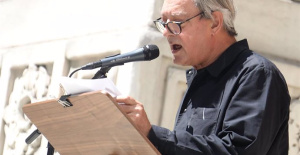 Prominent American writer Paul Auster dies at 77 from lung cancer
Prominent American writer Paul Auster dies at 77 from lung cancer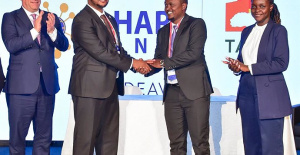 RELEASE: Rendeavor Expands High-Speed Internet Access to Local Communities Around Tatu, Kenya
RELEASE: Rendeavor Expands High-Speed Internet Access to Local Communities Around Tatu, Kenya Real Madrid saves a draw in Munich and will appeal again to the Bernabéu
Real Madrid saves a draw in Munich and will appeal again to the Bernabéu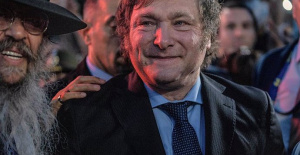 The Congress of Argentina approves the omnibus law that allows the privatization of some public companies
The Congress of Argentina approves the omnibus law that allows the privatization of some public companies How Blockchain in being used to shape the future
How Blockchain in being used to shape the future Not just BTC and ETH: Here Are Some More Interesting Coins Worth Focusing on
Not just BTC and ETH: Here Are Some More Interesting Coins Worth Focusing on Valencia unanimously approves the ordinance to allocate spaces to test innovative initiatives
Valencia unanimously approves the ordinance to allocate spaces to test innovative initiatives UPV researchers promote a paid master's degree as a "talent factory" in integrated photonics
UPV researchers promote a paid master's degree as a "talent factory" in integrated photonics A spin-off of the UV works on obtaining high-resolution 3D biomedical images in real time
A spin-off of the UV works on obtaining high-resolution 3D biomedical images in real time They create a bank of machinery sounds to prevent breakdowns through artificial intelligence
They create a bank of machinery sounds to prevent breakdowns through artificial intelligence A million people demonstrate in France against Macron's pension reform
A million people demonstrate in France against Macron's pension reform Russia launches several missiles against "critical infrastructure" in the city of Zaporizhia
Russia launches several missiles against "critical infrastructure" in the city of Zaporizhia A "procession" remembers the dead of the Calabria shipwreck as bodies continue to wash up on the shore
A "procession" remembers the dead of the Calabria shipwreck as bodies continue to wash up on the shore Prison sentences handed down for three prominent Hong Kong pro-democracy activists
Prison sentences handed down for three prominent Hong Kong pro-democracy activists ETH continues to leave trading platforms, Ethereum balance on exchanges lowest in 3 years
ETH continues to leave trading platforms, Ethereum balance on exchanges lowest in 3 years Investors invest $450 million in Consensys, Ethereum incubator now valued at $7 billion
Investors invest $450 million in Consensys, Ethereum incubator now valued at $7 billion Alchemy Integrates Ethereum L2 Product Starknet to Enhance Web3 Scalability at a Price 100x Lower Than L1 Fees
Alchemy Integrates Ethereum L2 Product Starknet to Enhance Web3 Scalability at a Price 100x Lower Than L1 Fees Mining Report: Bitcoin's Electricity Consumption Declines by 25% in Q1 2022
Mining Report: Bitcoin's Electricity Consumption Declines by 25% in Q1 2022 Oil-to-Bitcoin Mining Firm Crusoe Energy Systems Raised $505 Million
Oil-to-Bitcoin Mining Firm Crusoe Energy Systems Raised $505 Million Microbt reveals the latest Bitcoin mining rigs -- Machines produce up to 126 TH/s with custom 5nm chip design
Microbt reveals the latest Bitcoin mining rigs -- Machines produce up to 126 TH/s with custom 5nm chip design Bitcoin's Mining Difficulty Hits a Lifetime High, With More Than 90% of BTC Supply Issued
Bitcoin's Mining Difficulty Hits a Lifetime High, With More Than 90% of BTC Supply Issued The Biggest Movers are Near, EOS, and RUNE during Friday's Selloff
The Biggest Movers are Near, EOS, and RUNE during Friday's Selloff Global Markets Spooked by a Hawkish Fed and Covid, Stocks and Crypto Gain After Musk Buys Twitter
Global Markets Spooked by a Hawkish Fed and Covid, Stocks and Crypto Gain After Musk Buys Twitter Bitso to offset carbon emissions from the Trading Platform's ERC20, ETH, and BTC Transactions
Bitso to offset carbon emissions from the Trading Platform's ERC20, ETH, and BTC Transactions Draftkings Announces 2022 College Hoops NFT Selection for March Madness
Draftkings Announces 2022 College Hoops NFT Selection for March Madness